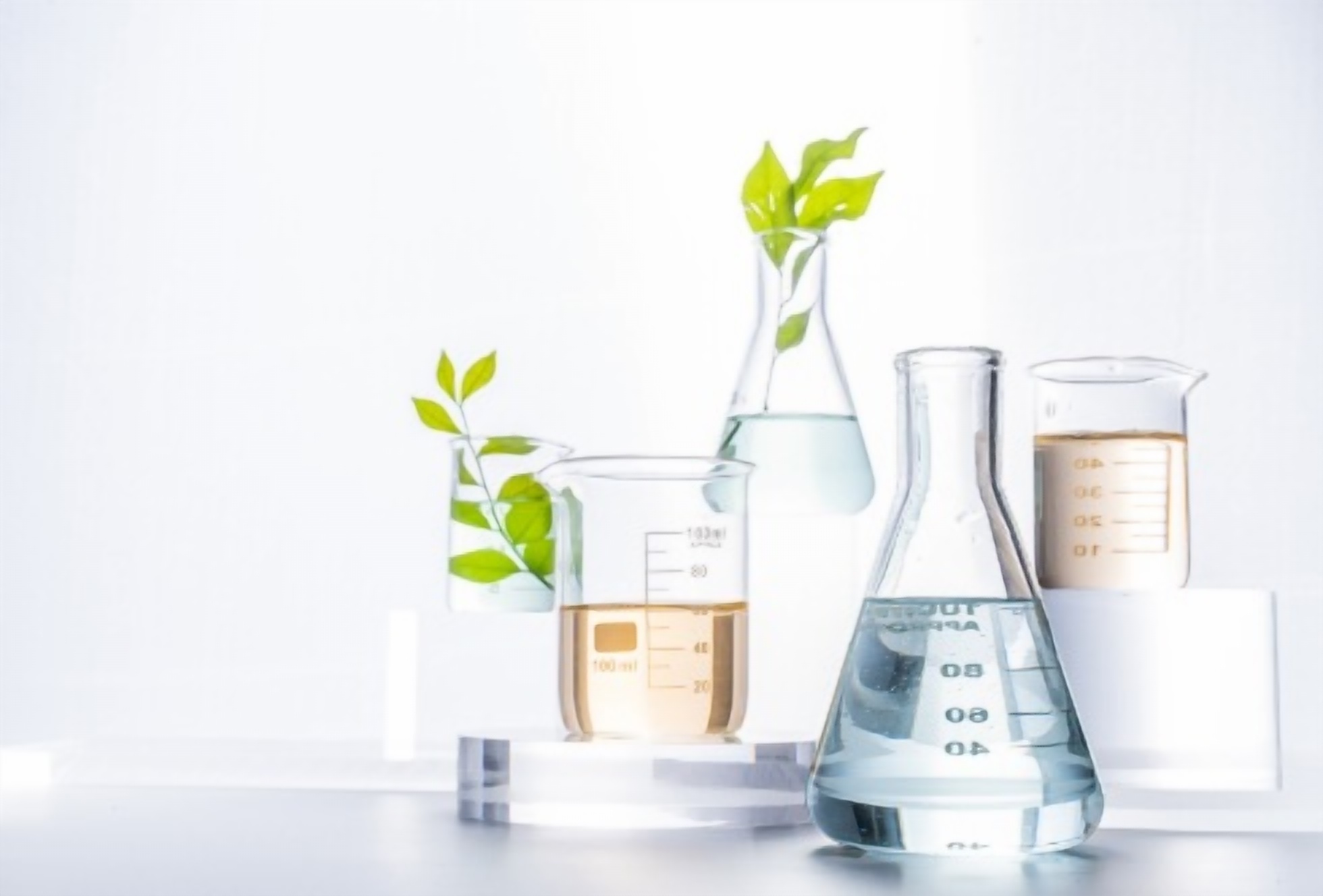It could look at first glance that nature and science are an unlikely match, born enemies of sorts, however in the field of cosmetic biotechnology this pairing has yielded some spectacular results in record time.
The natural ingredients that have passed through a petri dish, are benefiting both your skin and the planet.
It isn’t an accident that even the most stablished conventional cosmetic brands are tapping into this technique that has been proving its merits for centuries. In its most basic form, even making cheese or wine is a triumph of biotechnology. The current techniques allow the usage of natural raw materials in a faster way that is also more sustainable and even more powerful.
What is biotechnology?
At its simplest, it’s a technology based on the combination of biology and chemistry that is used to develop products that help improve the lives of both people and the planet.
It’s a term that describes a variety of techniques and research fields that cover from food (yeast is the key to making bread and it is a live organism) to very popular ingredients in cosmetics like hyaluronic acid or peptides.
In the past, the traditional cosmetic industry often looked for active ingredients in the wrong places, relying in overused natural resources. Biotechnology has de ability to grow these in a controlled lab environment, without the need for endangered species to be tacked in the process, with the additional benefit that they are usually even better than the original ones.
How does it work?
There are a few different ways to use biotechnology. You can use fermentation which is the natural transformation of a substance by the action of a bacteria or fungus. A second way would be plant cell cultures and a third one enzymes. This last process is called enzymatic synthesis.
Fermentation is one of the most common ones, due to its simplicity and the fact that the human race has been successfully using it during centuries to make wine or bread by the action of yeast and friendly bacteria.
Applied to cosmetics, the fermentation has the ability to create a new material that has very different properties to the original one.
Why is it sustainable?
Traditional cosmetic production carries a lot of issues. Ingredients that go through a chemical process often introduce impurities that are very harmful toxics, like 1,4 dioxane or formaldehyde or start with base materials that are less than desirable like gas or petroleum.
These ingredients have hugely high carbon footprints and left cosmetics riddled with impurities that you don’t want to be putting on your skin.
On the contrary, lab made ingredients ensure that there are no impurities in the end product and the process is so precise that a scientist can even regulate the potency of the output.
It has also de ability to avoid the usage of questionable origin ingredients altogether, like squalene. This moisturiser naturally present in our skin that depletes with time, was in another life extracted from the liver of sharks, in 2016 a biotech company was able to synthetise a plant-based alternative, from sugar cane saving the lives of two million sharks a year but also, creating something new which is 100% identical to human skin, improving greatly the ability of cells to absorb and utilise. This new compound was called squalane, with an a.
We have another great example in the recently created bio hyaluronic acid, synthetised by a well-known Japanese cosmetic firm while the rest of the market was still using the traditional one extracted from rooster’s combs.
What can biotechnology do for your skin?
Besides the evident advantage for the environment, the list of skincare benefits is also impressive due to the purity of the ingredients created this way. In the lab, the control over the process avoids the ingredients from being exposed to external aggressors that can modify them or pollute them. It can even control the size of the molecules to allow for improved tolerance or absorption, like the in the case of encapsulated vitamin C.
Which ingredients in my cosmetics are made using biotechnology?
You can always read the ingredient list of a cosmetic product to find out, but this isn’t a straightforward solution. Complex as it may seem, there are some clues in the names that lead you into the right direction.
Peptides (aminoacids) are a common one, as well as probiotics and oligosaccharides (enzymes). A common one is hemisqualane, its molecule is half the size of a regular squalane one, allowing for a lightweight finish that has created important product benefits in hair oils, for example. There is also the bioethanol, present in hand disinfectants, fragrances and hairspray and that consume a lot less resources in its production that its traditional counterpart.
What will the future bring for cosmetics?
With the growth in materials, ingredients and fields of application, we can look forward to a variety of innovations that will make our natural skincare more effective and less irritant that ever before, even for sensitive skin.
From food to injectables, this technology will bring a more sustainable and healthy future for both people and the planet.
Eleven Obi is an organic natural skincare brand at the spearhead of innovation to bring you the latest advances so your skin can always look its best.



